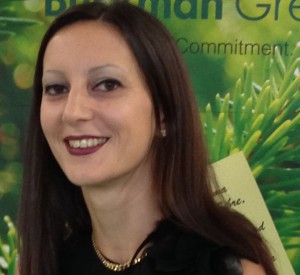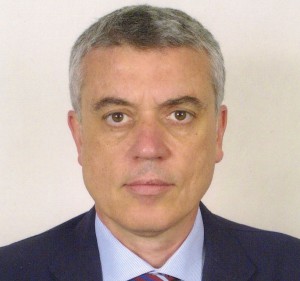Federico Reguzzi
As an integral part of the paper making process, chemistry is a key factor for the sector industry and chemical suppliers increasingly act as the trait d’union between paper mills and final market demand. Experiences of collaboration thus appear, which provide for an improvement in the quality of finished products and the productive process.
Chemistry in the paper making process has a major influence both over the stages directly related to the production process and over paper appearance and features. The search for increasingly performing products and the development of solutions meeting customers’ needs have turned chemical suppliers into major partners for paper and cardboard producing companies.
Functional additives
The chemical industry focus for the paper sector has been on improving the safety and effectiveness of chemical products.
«One needs to distinguish between two categories of products» says expert Carlo Cerutti on the matter, i.e. «functional additives and process auxiliaries». As for functional additives, which are used to provide paper with particular functions, paper making chemistry has developed specific features aimed at improving their safety for human and environmental safety. «Major steps forward have been made, especially on issues like health, toxicity and safety, and great attention has been paid not only to products, but also on all production intermediate steps, thereby involving the entire supply chain. Generally speaking, a habit is developing to use chemical products more knowledgeably, for the sake of both effectiveness and economy, and to use only the rights products and only when these are needed, thereby avoiding overages».

Process auxiliaries
Effectiveness and prevention: these are the objectives pursued by chemical companies, which in recent years have been working on process auxiliaries for those paper mills that prove to have paid more attention to the selection of components and chemical solutions by adopting a new approach to their selection. «While in the past problems would be solved as soon as they arose, e.g. removing foams at the moment of their creation or cleaning felts with detergents if needed, now the focus is more on prevention and the continuous removal of the problem», explains Cerutti. The data sheets of process auxiliaries, as well as of any chemical entering a paper mill, are carefully assessed before testing the effectiveness of the product. Much progress has been made also thanks to the norms, in particular «the Reach regulation, which contributed to bring about more order in the paper mill, and the environmental, quality and accident prevention management systems that all paper mills now boast».
The chemical sector of the future
A number of challenges lie ahead for the chemistry industry in paper making. «The biggest technological challenges will involve the improvement of the effectiveness and compatibility of various products. Suppliers will have to make sure that their articles are not only compatible with those of their customers, but also with any product used along the entire supply chain. Mr Cerutti also explains that «furthermore, the focus will be on increased ease of both use and formulation, as well as stressing the factor of the least cost possible, which is always a priority one».
This continuous experimentation affects several aspects, ranging from new materials «with the study of the use of enzymes and bacteria biotechnologies to generate specific reactions and allow for less severe environmental impacts», to nanotechnologies in terms of «nanocelluloses for the production of products as resistant as kevlar, i.e. a synthetic fibre that is highly resistant to mechanical stress and heat, and nanoparticles paving the way to the implementation of mechanical, optical and chemical features for the generation of different products».
These are all avant-garde research studies, some of which still ongoing, which can lay the foundations for interesting developments and lead to the creation of alternative solutions. And yet the biggest challenges will be played on the processing of raw materials: «to produce certain features in the paper, chemicals might be added as early as during the stage of cellulose production», continues Cerutti. «In this respect, functional groups might be seamed to cellulose during cellulose production, thereby making it waterproof and enhancing its functions; these experiments are already taking place on other materials, like wool, and might lead to interesting results also with cellulose».
New papers
Chemistry will thus play a key role also in supporting the paper industry in the competition with other materials alternative to paper, with the dispute occurring outside the sector with plastic materials as well with the electronic sector, suffice it to think about e-books, tablets, smartphones and computers, which have largely conquered back the market previously exclusively dominated by paper over the last few years. Mr Cerutti believes that in the near future a solution at the level of the supply chain will be needed in order to «reinvent paper both to induce people to continue using it, and for paper to be again a privileged means for advertising communication through magazines, catalogues and brochures. It will thus be necessary to face technological challenges leading to a more environmentally-friendly and sophisticated role for the product, as well as marketing challenges to be intended as adjustments to a rapidly evolving market where paper must find its new position».
Paper mills and suppliers
New needs and similarly new prospects have brought about a change also of the profile of chemical suppliers, who end up to increasingly play the role of real «consultants» for paper mills, acting in close collaboration with them in the search for the best product solutions and their applications. «Partnership between the two has always existed and has now become extremely important, enabling the paper mill to really understand what kind of products it uses in its production cycle, which is of crucial importance as the paper mill is responsible for them». And chemical companies do not limit themselves to serve this function alone, but rather become service providers, as «paper mill resources in terms of R&D and supporting consulting services, have always been quite limited and mainly entrusted to technicians working in the production department, who in turn require the support of suppliers who are expert in chemistry. Both basic and applied research activities, and the diagnostic analyses carried out in the paper mills are rare, if not virtually non-existent, hence the need to entrust providers with the analysis and diagnosis services».
On top of this, the lean economic period has in the end confined technicians to the plant and turned suppliers into their direct interlocutors also when it comes to new developments or technical and market updates. «This can be clearly seen during meetings and technical events especially dedicated to the sector; therefore, suppliers increasingly play a fundamental role», concludes Cerutti, «a role capable of transferring new developments and innovations also inside the plants».
What suppliers say
An overview of the opinions expressed by some of the most important suppliers of chemical products can help understand how chemical companies supplying the paper making sector are able to meet the needs of this market.
Clear and shared projects
Suppliers have to comply with a number of objectives, including the correct management of deposits to maintain paper quality and improve the production process, which is based on the right balance between effective solutions and their impact, also economic one. «There is a strong interest for treatments that provide for the cleaning of the paper formation wires and the felts and can be applied without costly dosage systems combining effectiveness, flexibility of use, absence of risks and negative side effects, as well as low costs». Conversely, as regards finished products, especially in the tissue sector, «increasing importance is being acquired by certifications which guarantee the health and safety of consumers, as well as the environmental compatibility of production processes and the raw materials used».
In any project it is fundamental to define the terms of the collaboration with «clearly set objectives and the willingness to exchange views and ideas and share information»; once this is done «no other barriers to bring down exist».

Interpreters of evolutions
Keeping the two most important cost elements, i.e. energy and raw materials, low and enhancing the mechanical characteristics of paper: these are the two imperatives for the paper making sector. Each paper mill then has its own specific needs, for which tailor-made technical innovations must be developed. But everything stems from reciprocal interaction and the ability to profit by the experiences made also in other sectors: «very often, one does not need to invent anything from scratch». Yet, to achieve this suppliers must be considered as a resource for the company and should be involved in the strategies of their customers. The market is rapidly evolving and companies must be able to find ways to reinvent themselves. «At Axchem we try and look at ourselves as final paper users, as well as at society to grasp ongoing change. In certain sectors, paper is going through a technological shift that cannot be stopped: this can be seen from e-readers taking away market shares to the newsprint; but this shift opens up new opportunities, as well. Our efforts aim at identifying change and understand how chemistry can contribute to achieve it».

Teamwork
Chemical solutions must provide paper mills with an answer to their requests with adequate return on investment. «The latest research frontiers addressed by Buckman concern plant-based coagulants, PFOA-free anti-grease products, new applications of specific enzymes, i.e. cellulases, proteases, lipases, laccases and esterases, and the wider domain of nanotechnologies».
Yet an increasingly closer interaction between objectives should be pursued, like «the use of specific formulas that are environmentally friendly, comply with health and safety norms in force and whose performance can be carefully monitored». «Openness towards new developments, clarity and sharing of experiences are fundamental attitudes for both parties. A better relationship between the paper mill and the supplier can be established by working together on a common project, thereby following its development up to its finalization». This rapidly evolving relation is already characterizing international groups, which are pushed to establish ever closer partnerships with their suppliers.

Recreating balance
Paper mills focus on renewable and reusable materials. «Most of the requests we receive have to do with the replacement of synthetic latex during coating with renewable materials; furthermore, a strong interest is shown for solutions enabling a better use of recycled fibres. Major fine-tuning in collaboration with the customer is needed, in order for the benefits of the new product not to be wiped out by unexpected side effects. After all, any introduction of a new product in the paper mill implies an alteration of the established balance of the process». Hence the importance for suppliers to act as consultants for the paper mill, «ready to follow the developments of the productive process with flexibility and willingness to adapt to new evolving needs». To this end, «at Cargill we work in partnership with our customer paper manufacturers and provide them with the technical knowledge acquired in the sector, where we have been working for several years now».

Acting as a reference point
Paper mills require increasingly performing products, which comply with the norms in force and contribute to process optimization, thereby reducing production costs, especially the ones related to energy, water and material consumption. Yet, also due to the current economic situation, the market often chooses more risky and dangerous ways. «The competitiveness faced by companies often leads to prefer using cheaper and older materials, thereby postponing the use of products that can anticipate future norms or resorting to these products only if compelled to». Against this background, the experience made by suppliers becomes fundamental. «The collaboration we establish with our customers is not only limited to the mere provision of goods by a supplier; we rather act as partners helping them solve their problems and search for new developments. Also thanks to a sales team scattered all over the territory and extremely competent technicians, our company is thus a constant reference point on the market».

Communication as the starting point
The optimization of paper mill applications requires communication between customers and suppliers, often still lacking today, to come to the fore. Only with a «complete collaboration between the parties can positive results be generated to the advantage of both. Problems of technical-chemical nature can be solved only with a clear illustration of the problem by the paper mill and adequate planning and subsequent proposal by the supplier». In particular, working for the perfectioning of applications implies taking a «series of various factors into account: adequate products, application knowledge and proper introduction of the chemicals used. All the above, while waiting for the improvement of new technologies, enzymes, effective nanotechnologies at accessible costs». Finding the right balance between effectiveness, environmental protection and compliance with the norms is one of the most delicate issues, especially for the provision of bioacid chemical products, which have been conceived to counter microbiological proliferation that causes defects and productive inefficiencies, though ensuring low environmental impact.


Dear Sir,
we are looking for Startch suppliers for our paper mills.
We need these following items for paper machine.
TEST LINER CRAFT LINER
Furnish
100% ind LKC per ton
ROSIN 0.8% – 8 KG
ALUM 2.5% – 25 KG
DEFERMER 0.05% – 500 GRAM
STARTCH 2.5% – 25 KG
SURFACE SIZING 0.5% – 5KG
COLORS 0.2% – 2KG
FLUTING PAPER
70% OCC
30% IND LKC
ROSIN 0.8% – 8 KG
ALUM 2.5% – 25 KG
DEFORM 0.05% – 500 GRAM
STARTCH 2.5% – 25 KG
SURFACE SIZING 0.5% – 5KG
Thanks & Regards,
Georges Antoun Moukarzel
(G.M.)
Riyadh columns carton factory
Riyadh, Saudi Arabia
Mob.: +966 505212010, +966 593755570
Comments are closed.